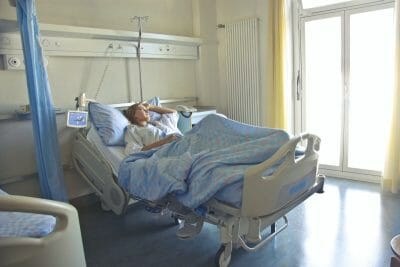If you are close to someone who has just suffered a stroke, your world has probably been turned upside down. Strokes can be incredibly devastating and life-changing events. In this blog post, we will discuss six important things that you need to know to help the person who has had a stroke and cope with the aftermath yourself.
1. Getting a stroke lawyer
If the stroke was caused by a medical professional’s negligence, it is important to contact a qualified lawyer. A stroke lawyer can help you and your loved one get compensation for their injury, as well as any other losses that have been suffered due to the episode. The amount of compensation will vary depending on the circumstances, but having a legal representative who understands what you are going through can make all the difference in getting the best possible outcome. A lawyer can also advise on the next steps to take and can provide invaluable emotional support at this difficult time. It is important to remember that stroke cases can take some time to resolve, so it is also important to plan and create a budget.
2. Receiving rehabilitation treatments
Immediately after a stroke, there may be physical impairments that prevent movement and normal functioning. Rehabilitation treatments are available to help patients recover lost motor functions and/or learn how to cope with disabilities caused by brain damage. Depending on the severity of the stroke, these treatments may be provided on an inpatient or outpatient basis, and include physical therapy, occupational therapy, and speech-language pathology. It is important to work with a rehabilitation team that understands your loved one’s individual needs, as recovery from a stroke can take weeks or months depending on their condition.
3. Making lifestyle changes
While the recovery process can be long and difficult, it is important to make certain lifestyle changes that will help ensure the best possible outcome after a stroke. These include quitting smoking and drinking alcohol, increasing physical activity levels, eating healthy foods, and maintaining good hygiene habits. Depending on your family member’s capabilities after their stroke, they may also need assistance with basic everyday tasks such as bathing, dressing, and preparing meals. There are also support groups available for both stroke survivors and their families that can provide emotional support and help educate them on living with a disability.
4. Managing stress levels
The aftermath of a stroke can be extremely stressful for both the patient and their family members. It is important to manage these stress levels by planning ahead, focusing on positive things, and seeking help from mental health professionals if necessary. Taking part in activities such as yoga or mindfulness can also be beneficial for helping to reduce anxiety and promote relaxation. If the patient can, engaging in social activities and joining a support group can also be beneficial for both them and their family members.
5. Making financial preparations
Depending on the extent of the stroke, it may be necessary to make certain financial preparations to ensure that your loved one has access to the care they need while they are recovering. This could include making changes to insurance policies, setting up trusts, or setting aside funds for treatment costs if necessary. If you and/or your loved one are not already insured, then getting stroke insurance coverage is definitely something you should consider. It is important to discuss these options with a qualified financial planner or lawyer to ensure that you are making the best decisions for your family.
6. Looking for signs of depression
Unfortunately, many stroke survivors struggle with depression due to physical impairments and other losses associated with their condition. It is therefore important to be aware of any signs or symptoms of depression such as changes in appetite, lack of energy, withdrawal from social activities, and feelings of worthlessness. If necessary, seek help from a mental health professional who can provide support and treatment for both the patient and their family members.
Why is a stroke so dangerous?
Stroke can be a very dangerous condition, as it affects the brain and can cause permanent damage or even death. A stroke occurs when a blood vessel in the brain is blocked or bursts, preventing oxygen from getting to the brain and causing cells to die. This loss of blood flow can lead to paralysis, difficulty speaking or understanding language, loss of memory, difficulty seeing, and other impairments. Strokes are particularly serious due to their fast onset and the irreparable damage they can cause if not treated quickly. That is why it is important to recognize the signs of stroke and seek medical attention immediately. It is also important to work with a healthcare team that understands your loved one’s individual needs while they are recovering from a stroke.
Managing the aftermath of a stroke can be difficult and overwhelming but it is possible to cope with all aspects if you have access to the right resources. By following the tips above, you and your loved one can work together to ensure a successful recovery and a better quality of life. So remember to be patient, stay positive and seek help when necessary. With the right support, you can get through this difficult time together. Good luck!
